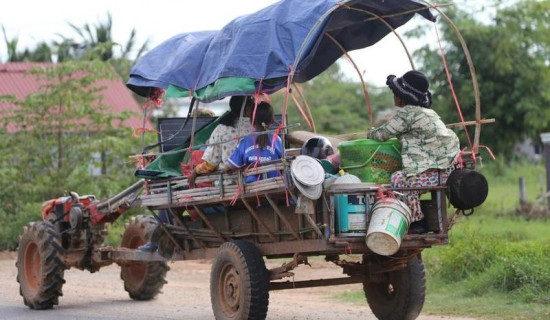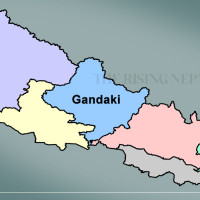- Saturday, 2 August 2025
International Women’s Day today
Nepali women need further empowerment
By A Staff Reporter,Kathmandu, Mar. 8: The world is observing International Women’s Day (IWD) on Saturday. Nepal is also marking it by organising various programmes under the theme, “For All Women and Girls: Rights. Equality. Empowerment.”
Over the years, Nepal has made significant progress in women's empowerment, particularly after the political movement of 2006. The Constitution has introduced several provisions to ensure equal rights for women. In the past decade, the country has seen women rise to top leadership positions, including the President, Speaker and Chief Justice.
The constitution also mandates 33 per cent representation of women in all political bodies, including the Parliament. In this context, The Rising Nepal talked to influential women in Nepali society to explore the current situation and the challenges faced by Nepali women.
Hisila Yami, former minister and a politician, said, “While looking back to the women's status in Nepal, women seem empowered during the peak period of ‘people's war’ and different movements, but the status is weakening nowadays.”
This is because the economic status of women has not been strengthened, though their political rights were established by those movements. She remarked that populism has taken centre stage globally, leading to a decline in inclusivity as right-winged ideologies gain prominence.
“Along with technological development, women have proven themselves equally capable as men in performing all types of work. Despite these, still, religion, culture and our traditional thinking have been creating hurdles to engaging women in the public sphere. Our society still wants women only in household roles. Therefore, to minimise different types of discrimination in society, the leadership must formulate adequate laws,” Yami said.
Nepali Congress Central Committee Member and former Deputy Speaker Pushpa Bhusal said that while women’s participation is positively addressed in the constitution and laws as well as given the quotas at all three levels of government, the implementation remains weak. “The social, political and economic participation of women is not as is outlined in the law,” she said.
According to Bhusal, to prioritise women’s issues, all constitutional provisions for women’s rights must be implemented. Policies should be formulated to ensure women’s access to the development sector. Women should have decision-making power in politics and the economic sector.
“Now is the time to formulate a national policy that is result-oriented. The government must focus on women’s empowerment, not just in written form, but also in implementation,” she said.
President of the Federation of Nepalese Journalists, Nirmala Sharma, said that while the law includes positive provisions for women's empowerment, the implementation aspect remains inadequate.
“Women have made progress in this changing world, but empowerment alone is not enough, as society still struggles to recognise women as change-makers.”
According to Sharma, the government and political parties have mandated 33 per cent of women's participation at all levels, but this alone
is not enough. Beyond policy, they must actively raise awareness about women’s empowerment and their crucial role in society to bring about meaningful change.
Awareness among women has increased due to media and social media, but the lack of proper implementation has created new challenges for them. “When women step into leadership roles, they face a double burden, managing both household and professional responsibilities alone. There is no societal support system in place that allows women to pursue leadership, careers or business opportunities without also bearing the full responsibility of household chores, which further adds to their struggles,” she said.
President of Sancharika Samuha, Bimala Tumkhewa, said that while women’s empowerment has increased over the past decade, it is still not sufficient.
According to Tumkhewa, 40 per cent of women's participation at the local level and 33 per cent at the provincial and federal levels are encouraging. “Empowered women are leading the society, signalling the approach of promising and transformative era in the coming decades," she said.









-original-thumb.jpg)







